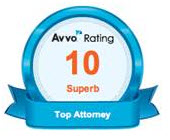Grinning and bearing it is not your only option when you are facing a debt crisis. In fact, it's very rarely even your best option. Working with a bankruptcy professional, you can find out both about bankruptcy options as well as other legal and financial remedies that could help you create a more stable financial future.
For individuals who are dealing with serious debt issues, numerous options exist. You might seek credit counseling through a court-approved program. Unlike programs that charge you a large commission to manage debt payments, this type of credit counseling walks you through solid financial management information and helps you identify income and expenses. Usually, you make a budget that might be able to help you resolve some debt issues.







